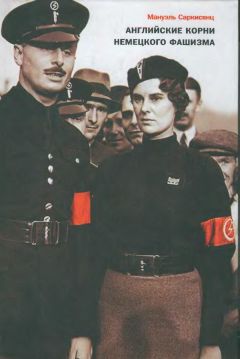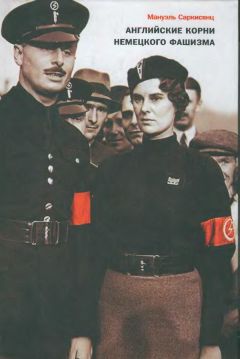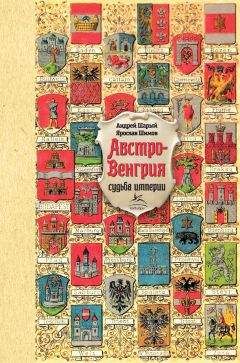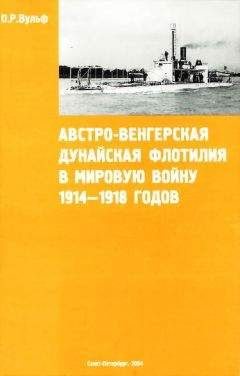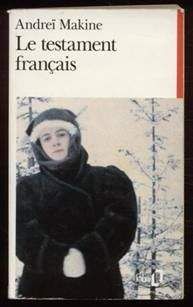1076
Ibid., p. 58, quotes Perak Annual Report (1895) without further details.
Jochen von Lang, Der Sekretar. Martin Bormann: Der Mann, der Hitler beherrschte (Munchen, 1990), S. 159; Brian Simon, Studies in the history of Education, 1780—1870 (London, 1969), p. 132, quoting R. Brimley Johnson (Editor), Letters of Hannah More (1925), p. 183.
Hermann Schreiber, Land Im Osten. Verheissung und Verhangnis, S. 353.
Ibid., S. 343, zitiert Generalgouverneur Dr. Hans Frank in der Polizei-Sitzung vom 30. Mai 1940.
Internationaler Militargerichtshof, Nurnberg (wie Anm. 707), Band XXII, S. 546.
Carthill, Verlorene Herrschaft, S. 146.
Ibid., S. 309.
Adolf Hitler, Mein Kampf (Munchen, 1936), S. 739ff: Christian Zentner, Hitler, Mein Kampf. Kommentierte Auswahl (Munchen, 1974), S. 32.
Carthill, Verlorene Herrschaft, S. 71.
Ibid., S. 13.
Ibid., S. 117.
Ibid., S. 72-73.
Ibid., S. 72.
R. Knox, in: Popular Magazine of Anthropology, I (1866), pp. 24ff, quoted by Christine Bolt, Victorian attitudes to Race, p. 22; Dennis Kincaid, British social life in India (London, 1973), p. xviii.
Thomas Babington Macaulay, Complete Writings, Band IX (New York, 1898?), S. 308— 317, quoted in: Houghton, Victorian frame of mind, S. 55—57.
Carthill, Verlorene Herrschaft, S. 108—109.
Ibid., S. 110.
Ibid., S. 110, 233.
Ibid., S. 234.
Ibid., S. 237.
Ibid., S. 101; C. Robert Leslie Fletcher, An Introductory History of England, Vol. V (London, 1904), p. 418.
Carthill, Verlorene Herrschaft, S. I79f.
Rudyard Kipling, Something of Myself (London, 1937), pp. 224f; K. Bhaskara Rao, Rudyard Kipling's India (Norman, USA), p. 6.
Carthill, S. 219.
Ernst Klee & Willi Dressen, "Gott mit uns". Deutscher Vernichtungskrieg im Osten (Frankfurt, 1989), S. 34.
Carthill, Verlorene Herrschaft, S. 98; An. Картхилль. Потерянная империя: Почему англичане потеряли Индию. Повесть англо-индийского администратора. С. 77.
Ibid., S. 98; Там же.
Ibid., S. 92F; Taм же.
Ibid., S. 89; Там же.
Ibid., S. 88.
Hitler, Monologe, S. 96: 19. und 21. Oktober 1941.
Carthill, S. 85; K. Tidrick, Empire and the English Character, p. 237.
Otto-Ernst Schuddekopf, Fascism (London, 1973), p. 31.
Дреннан Джеймс: псевд., настоящее имя — Аллен Уильям Эдвард Дэвид (1901 — 1973) — англ. историк и публицист.
James Drennan, Der britische Faschismus und sein Ftihrer (Berlin, 1934), S. 217.
David Baker, Ideology of Obsession, A. K. Chesterton and British Fascism (1996), p. 169; Sir Oswald Mosley, The Greater Britain (London, 1934), p. 20; Richard Thurlow, Fascism in Britain, A history 1918—1985 (Oxford, 1987), p. 249f.
Houston Stewart Chamberlain, Lebenswege meines Denkens (Munchen, 1942), S. 29; Geoffrey G. Field, Houston Stewart Chamberlain: Prophet of Bayreuth (Ann Arbor, Michigan, USA, 1975: University Microfilm), p. xiii, 3f, 481; Peter Stanley, The White Mutiny... in India (New York, 1998), p. 95.
Thurlow, Fascism in Britain, p. 249.
Colin Cross, Fascists in Britain (New York, 1961), p. 179.
A. K. Chesterton, Oswald Mosley. Portrait of a leader (London, 1937), p. 168.
Richard Griffiths, Fellow-travellers of the Right. British enthusiasts for Nazi Germany (Oxford, 1983), p. 86.
Эйткен Уильям Максуэлл, первый барон Бивербрук — англ. гос. деятель (консерватор, неоднократно занимал министерские посты) и владелец газетного концерна «London express newspapers limited».
Thurlow, Fascism in Britain, p. 5, 249, quotes: D. A. Baker, "A. Chesterton. The making of a British Fascist": Dissertation of the University of Sheffield (1982), p. 268—277, 33 1-334.
Thurlow, Fascism in Britain, p. 278—279.
Ibid., p. 253.
Ibid., p. 249f.
Griffiths, Fellow-travellers of the Right, p. 86.
Thurlow, Fascism in Britain, p. 53.
Colin Cros, Fascists in Britain, p. 98, 61; T. Kushner and K. Lunn, Traditions of Intolerance... race discourse in Britain (Manchester, 1989), p. 151.
Уильям Джойс (1906—1945) — натурализованный американец, в 1938 г. получил британский паспорт, потом поступил на геббельсовское радио; в 1945 г. повешен как изменник родины.
Ibid., p. 171f, zitiert William Joyce, National Socialism Now (1937); W. A. Rossignol, "Why try Democracy": Indian Empire Review (April, 1933), quoted in G. C. Webber, Ideology of the British Right (London, 1980), p. 130; Rebecca West, The Meaning of Treason (London 1949/2000), pp. 134f.
Drennan, Der britische Faschismus, S. 205.
Colin Cross, Fascists in Britain, p. 53.
Ibid., p. 29; Sir Oswald Mosley, The Greater Britain (London, 1934), p. 146f.
Kincaid, British social life in India, p. 317.
Action vom 17. September 1936, cited in: Gisela Lebzelter, Political Antisemitism in England 1918-1939 (Oxford, 1978), p. 97.
Hannah Arendt, Elemente und Ursprunge totaler Herrschaft, S. 306f.
D. S. Lewis, Mosley, Fascism and British society 1931—1981 (Manchester, 1987), p. 182, quotes: William Joyce, Fascism and India (British Union of Fascists Publication: London, 1935), p. 2.
Gisela Lebzelter, "Henry Hamilton Beamish and The Britons", in: Kenneth Lunn & Richard C. Thurlow; British Fascism, Essays on the radical Right in interwar Britain (London, 1980), p. 44f, 48f; Thurlow, Fascism in Britain, p. 10, 5.
John Clarice, The Call of the Sword (London, Financial News, 1917), pp. 10-11, 28.
The Times (London) of 17. October 1917 and 2. July 1918: Colin Holmes, Antisemitism in British society 1876—1939 (London, 1979), p. 139, cited in: G. R. Searle, Corruption in British Politics 1895-1930 (Oxford, 1987), p. 247-248; Lebzelter, "Henry Hamilton Beamish and The Britons", in: Kenneth Lunn & Richard C. Thurlow; British Fascism. Essays on the radical Right in interwar Britain (London, 1980), p. 50.
Searle, Corruption in British Politics, p. 336ff, 345.
Kenneth Lunn & R, Thurlow, British Fascism. An essay on the radical Right in interwar Britain (London, 1980), p. 42, 10; Lebzelter, "Henry Hamilton Beamish and The Britons", in: Kenneth Lunn & Richard C. Thurlow; ibid, p. 65; Lebzelter, Politial Antisemitism in England 1918—1939 (Oxford, 1978), p. 58, 188, quotes: "Jewry uber alles", in: Hidden Hand, I, Nr. 3 (April 1920); II, Nr. 3 (April 1921), p. 1.
Lebzelter, ibid., p. 52, 54; Colin Cross, Fascists in Britain, p. 120, 125; Barry A. Kosmin, Colonial Careers for marginal fascists. Portrait of Hamilton Beamish: Wiener Library Bulletin, XXVII, No. 30/31 (London, 1973/74), pp. 17-18, 22f.
Missed footnotetext
Missed footnotetext
Hans Grimm, Heynade und England, S. 103; Thurlow, Fascism in Britain, p. 49.
Gisela C. Lebzelter, "Antisemitism — a focal point for the British radical Right": Paul Kennedy & A. Nicholls (Hrsg.), Nationalist and racialist movements in Britain before 1914 (Oxford, 1981), p. 97, 99.
G. C. Webber, Ideology of the British Right, 1918-1939 (London, 1980), pp. 58, 69.
Robert Wilton, in: The Times (London) of 8. May 1920, p. 24; Victor Marsden, The Cause of World Unrest (London, 1920), p. 190—194, cited in: Norman Cohn, Histoire d'unemyth. La conspirationjuive et le Protocoll des Sages de Sion (Paris, 1967),S. 154f and in Walter Laqueur, Russia and Germany (London, 1965), p. 311—314.
Lebzelter, Political Antisemitism in England 1918-1939 (Oxford, 1978), p. 21, 182 (David Casaroni, "Joynson-Hicks and the radical Right in England after the first World War").
Illustrated Sunday Herald of 8. February 1920: "Zionism versus Bolshevism", cited in: Lebzelter, "Antisemitism — a focal point for the British radical Right": Paul Kennedy & A. Nicholls (Editor), Nationalist and racialist movements in Britain before 1914 (Oxford, 1981), p. 99ff; Sherman Kadish, Bolsheviks and British Jews (London, 1992), pp. 135, 140f.
Thurlow, Fascism in Britain, S. 25,49; Wilhelm Dibelius, England, Halbband I (Leipzig, 1929), S. 418.
Lebzelter, "Antisemitism — a focal point for the British radical Right": Paul Kennedy & A. Nicholls (Hrsg.), Nationalist and racialist movements in Britain before 1914 (Oxford, 1981), p. 98.
Griffiths, Fellow-travellers of the Right, p. 65f.
Ibid., p. 61.
Arnold Leese, Out of Step (Hollywood, 1951), p. 49; Colin Cross, Fascists in Britain, p. 152; Th. Linehan, British Fascism, 1918—1939. Parties, ideology, culture (Manchester, 2000), pp. 52ff.
Gothic Ripples, Nr. 96 (14. Januar 1953), p. 4, cited in: John Morell, "Arnold Leese and the Imperial Fascist League. The impact of racial Fascism: Lunn & Thurlow, British Fascism. An essay on the radical Right in interwar Britain (London, 1980), p. 64.
The Fascist, Nr. 29 (October 1931), p. 1; Nr. 81 (February 1936), p. 1; Gothic Ripples; Nr. 13 (21. March 1946), p. 1; Nr. 33 (18. January 1948), p. 1-2, quoted in: Robert Skidelsky, "Reflections on British Fascism": Lunn & Thurlow, British Fascism. An essay on the radical Right in interwar Britain (London, 1980), p. 84.
Ibid., p. 70-73, 85 with reference to The Fascist, Nr. 31(December 1931); Nr. 67 (Dezember 1934), p. 1; Nr. 84 (May 1936), p. 2.
Thurlow, Fascism in Britain, p. 71.
Ibid., p. 153.
С. M. Trevelyan, History of England, Band I (Garden City, USA, 1952), p. 252; W. R. W. Stephens (Editor), Life and Letters of Edward Freeman, Vol. II (London, 1895), p. 428: Letter from Oxford of 8. February, 1891.
Colin Cross, Fascists in Britain, p. 153; Th. Linehan, British Fascism, 1918—1939. p. 54.
Arnold Leese, Out of Step (Hollywood, 1951), p. 49.
Th. Linehan, British Fascism, 1918—1939, pp. 48f; Roland N. Stromberg, Redemption by War, The intellectuals and 1914 (Lawrence, Kansas, USA, 1982), p. 88; Hanswerner Nachrodt, "Kolonialdichtung und Kolonialpolitische Schulung", in: Deutscher Kolonialdienst, Nr. 17 (1937), S. 19ff, angefuhrt bei Horst Kuhn, Faschistische Kolonialideologie und der Zweite Weltkrieg (Berlin Ost, 1962), S. 115; Kipling (wie Anm. 776), S. 138, 154f, 156, 160.
Rudyard Kipling, Something of Myself (London, 1951), pp. 154, 157, 103, 119f, 132; R. Thurston Hopkins, Rudyard Kipling's World (London, 1925), pp. 64f; Harold Orel, "Kipling and Masculinity", in: Raphael Samuel (Editor), Patriotism. Making and unmaking of British national identity, Vol. Ill (London, 1989), p. 215; Hans Grimm, "Geistige Begegnung mit Rudyard Kipling", in: Das Innere Reich, Oktober/Marz 1935/ 36, S. 1458, 1465.
Francis Selwyn, Hitler's Englishman. The crime of Lord Haw-Haw (London, 1987), p. 86-87, 195.
Thomas Carlyle, Latter-Day Pamphlets... (1850) (London, 1911), p. 187, 191: "Parliaments".
